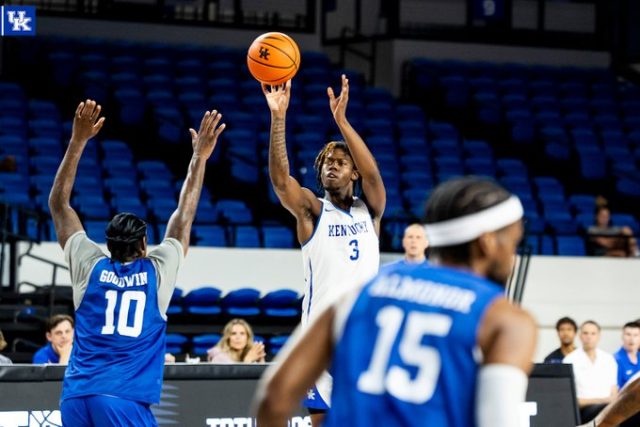Advocates say state’s wrong to reject foster care payments to relatives
Published 6:00 pm Saturday, April 14, 2018
When Logan County grandmother Kimberly Guffy agreed to care for her 3- and 5-year-old grandchildren full time, she did so to keep them out of the state’s foster care system.
Now Guffy says she’s been prevented by the state from becoming a foster parent and receiving financial assistance, despite a federal court ruling that says she should be eligible.
Trending
The situation has prompted her to file a lawsuit in Logan Circuit Court against the Kentucky Cabinet for Health and Family Services to bring them into compliance with the ruling.
“I don’t feel like the cabinet is taking any of this very seriously,” she told the Daily News. “I think the only way to compel the cabinet into compliance is through some sort of financial penalty.”
Last year, the U.S. 6th Circuit Court of Appeals ruled the state must pay relatives providing foster care in the same manner it pays licensed foster parents, according to a news release from the cabinet.
In the March 5 news release, the cabinet said relatives qualify if its Department for Community Based Services has placed the child with the relative, a home study and background checks have been conducted and the cabinet either retains custody or has given the relative or fictive kin temporary custody.
Guffy said she’s met those requirements, but she’s only received an offer from the cabinet for foster payments for her younger grandchild, who previously lived with a non-relative family. She said her older grandchild, who was never in foster care, was deemed ineligible for payments.
Norma Hatfield, an Elizabethtown grandmother raising two young girls, said Guffy’s situation isn’t unique. She’s been helping other relative caregivers work with the state to get support.
Trending
“They need to do the right thing,” she said of the cabinet. “The federal courts made the decision. They need to do what the law says.”
Hatfield also took issue with the cabinet’s appeal process for a refusal of financial assistance, which she said leaves relatives no other option than to hire an attorney.
“Most government agencies will give you an appeals process,” she said. “I think they’re supposed to.”
Doug Hogan, a cabinet spokesperson, responded to a request for comment by email.
“Because the expanded class of persons eligible for payments results from a court ruling rather than a statute or regulation issued by the Cabinet, there is unfortunately no statutory or regulatory appeal procedure regarding these payments as is normally the case for other benefits,” he wrote.
Hogan added that those who believe the cabinet is in error are encouraged to contact the cabinet to discuss the issue prior to hiring a private attorney.
The cabinet has encouraged individuals who think they might apply for payments to email the cabinet at DCBSChildProtection@ky.gov or to call a hotline at 877-565-5608.
In the March 5 news release, the cabinet said it had increased the number of staff tasked with taking field calls and hired temporary workers to further assist with calls.
“By adding resources to concentrate on this issue, we do not have a backlog of calls,” Hogan said in the email.
Foster payment amounts can vary based on a child’s needs, but the cabinet said in the news release they average about $750 a month per child.
For Guffy, those payments aren’t easy to walk away from. At 46 years old, she expected to enjoy more free time and financial security with her husband.
“It’s like raising our family all over again,” she said.
Guffy said she was told that, if she continued pursuing foster care payments, both of the children would be at risk of removal and placed with a non-relative family.
Her lawsuit also alleges she was told the Department of Community Based Services would pursue termination of her parental rights.
In its own legal brief responding to Guffy’s legal action, the cabinet said Guffy was not prevented from becoming a foster parent.
“A prerequisite to foster care is that the child must first be in the custody of the Cabinet in order to be placed in foster care,” the cabinet argued.
Hogan added in his email that “all relative and fictive kin caregivers are given the option to become approved foster/adoptive parents under existing regulatory standards.”
The cabinet also said Guffy could only be eligible for payments going forward and not previous payments given its immunity to legal damages as a government agency.
“Absent an express waiver of sovereign immunity by the General Assembly, the Cabinet is protected against a suit for damages and the only relevant exception to this rule is a request for an injunction against a state official seeking to prospectively cure a violation of the law,” it said.
On Thursday, both Hatfield and Guffy met with Maryellen Mynear, who heads the family branch in Kentucky’s Office of the Attorney General. They described the meeting as productive.
“It was a really good meeting,” Hatfield said. “I was very impressed.”
Attorney General Office spokesman Terry Sebastian also described the meeting as productive.







